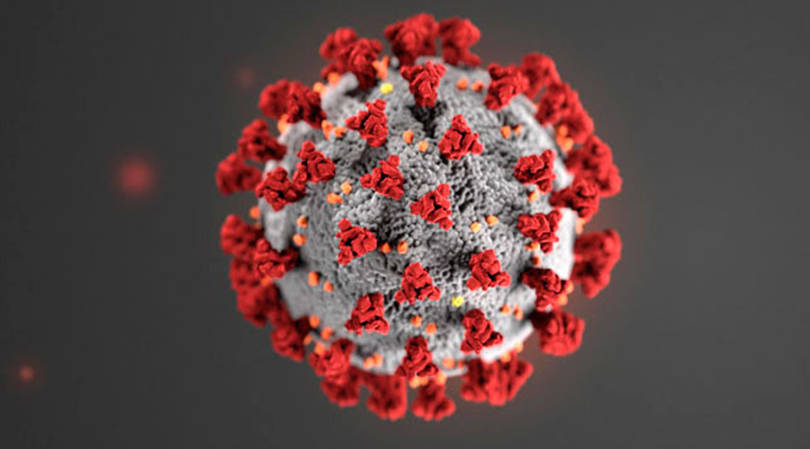A Jefferson County man diagnosed with COVID-19 has been transferred to Virginia Mason Hospital in Seattle, becoming the first of the North Olympic Peninsula’s 11 confirmed cases to be in critical care.
The man in his 40s — a new case — was in the Intensive Care Unit in critical condition on March 22, said Dr. Tom Locke, the county’s health officer.
Over the weekend, four new cases of the COVID-19 virus were confirmed in Clallam and Jefferson counties Saturday, including the first two known to be contracted through community transmission.
The positive test results, along with the Jefferson County man in ICU, bring the total number of confirmed cases as of Saturday up to 11 on the North Olympic Peninsula, with seven in Jefferson County and four in Clallam County.
While confirmed cases begin to creep up on the Peninsula, public health officers predict that personal protection equipment for health care professionals will run out in a month. Tests also are in short supply.
Dr. Allison Unthank, Clallam County health officer, said one of the new patients in Clallam County is a woman in her 40s and the other is a woman in her 60s. One patient was exposed to another patient who had been previously diagnosed. Another woman was exposed to the virus in King County.
Neither woman is hospitalized.
“They are both home and doing well in isolation,” Unthank said on March 21. She also said one of the previous patients has completely recovered from the virus.
Jefferson County Health Officer Dr. Tom Locke said the two new cases are both women, one in her 70s and another in her 20s. One happened from out-of-county contact and the other was a local transmission.
Neither of the Jefferson County women are hospitalized.
Locke warned both of the new cases in Jefferson County were discovered from tests taken a week ago. Jefferson County has 223 tests pending, so he expects numbers to start rising, especially of cases being locally transmitted.
“We anticipated this. It’s moving through the community. We’re in the early stages of in-county transmission. Expect more and more of these cases,” Locke said.
Investigation of contacts continues.
Health officials in both counties do not release information about the COVID-19 patients’ hometowns or other information about their identities.
A patient who was isolated for 12 hours last week at the Clallam County jail included a woman who was arrested March 18 for investigation of driving under the influence and possession of a controlled substance and who showed cold symptoms, Chief Corrections Deputy Wendy Peterson said March 20.
The woman said her son had recently been to China, Peterson said.
The woman, who was cleared for incarceration at Olympic Medical Center before being returned to the jail, was examined by Unthank, who tested her for the virus and ordered her to be in quarantine at her home while awaiting the test results, Peterson said.
The woman has an April 30 court appearance on the charges.
An officer said in an email March 19 that the woman’s statement that her son had been in China was “potentially false,” Peterson said.
Not enough equipment
Locke and Unthank said that health care personnel lack sufficient personal protection equipment such as surgical masks.
“Right now, we have enough masks to get us through probably the next month,” Unthank said, but “we anticipate this is going to last about two to three months.
“We are on track to run out of personal protection equipment in about a month.”
Unthank said that state officials had told her that it is out of personal protection equipment.
Locke said Jefferson County faces the same monthlong limitation on personal protection equipment.
Anyone who has masks to donate in Clallam County, or who can volunteer as health care providers and in other less skilled tasks such as answering the phone and making masks are asked to call the county hot line number at 360-417-2430.
Construction workers, janitors, dentists, nursing students and others have donated masks.
“Honestly, without them, we wouldn’t have been able to make it this far,” Unthank said.
The state Department of Corrections announced Saturday that inmates at Clallam Bay Corrections Center and at other prison will begin making protective gowns in response to a nationwide shortage. Eventually 12 Corrections staff and 160 incarcerated workers are expected to make up to 6,000 gowns per day, the department said.
Hospital patients, first responders and health care workers in both counties are the only people being tested for the coronavirus while a nationwide shortage of test kits continues, Unthank and Locke said.
That makes it all the more important that residents of all ages practice social distancing of 6 feet or more in public and that those vulnerable to the coronavirus, such as pregnant women, the elderly over 60 and those with serious underlying conditions, stay indoors as much as possible and avoid gatherings of 50 or more, they said.
Anyone with cold or flu symptoms should not go to work. They should stay home for 72 hours after symptoms go away, Unthank said.
Asymptomatic transmission is rare, as the virus is transmitted by droplet expelled by coughing and sneezing at a distance of 6 feet for 15 minutes or more, she said.
It also can be spread by being transmitted from solid surfaces such as steel and plastic that people touch before touching their faces.
“We anticipate that the vast majority of people who get COVID-19 will get better,” Unthank said, estimating that 20 percent of patients will need clinical care, with mortality driven by people in their 80s.
“We’re kind of all in this together,” Unthank said.



